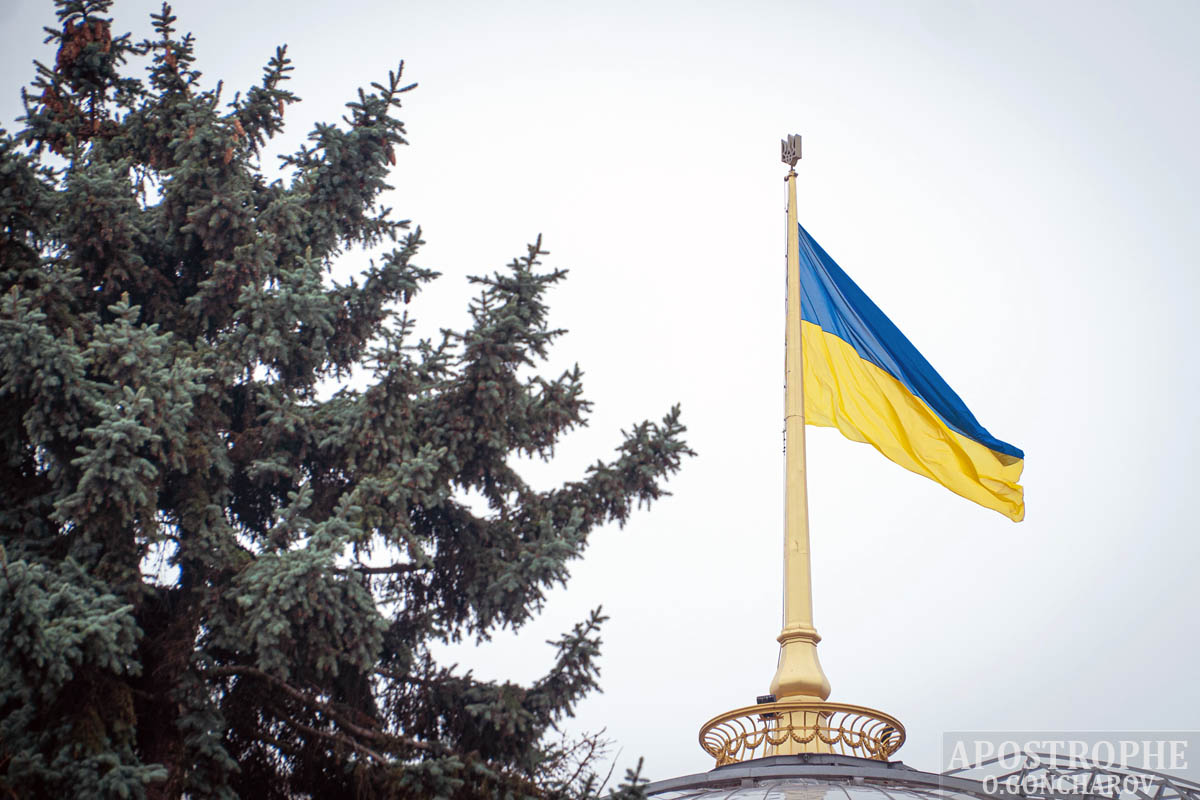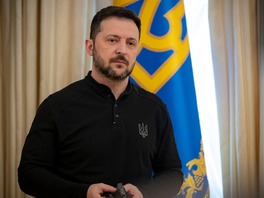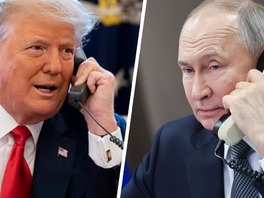The COVID-19 pandemic changed the traditional agenda of international politics and the usual way in which states pursue their foreign policy interests. Throughout the year, attention was mostly focused on the waves of new infections and their social-economic consequences. There’s been a worldwide growing demand for safety measures and new ways of conducting life now that social distancing has become the norm. International forums have brought up the concept of a new type of globalization. The economic repercussions of the pandemic have weakened institutions, exacerbated regional security problems, and are continuously threatening the internal stability of struggling countries.
The consequences were also palpable throughout international relations. Multilateral cooperation formats were forced to resort to online platforms in order to deal with continuous unconventional threats and countermeasures. Official visits have become a less reliable indicator of foreign policy activity, whereas a country’s ability to defend its national interests remotely has become more relevant. For Ukraine, specifically, 2020 wasn’t a year of successful breakthroughs, but rather one of the crises. It must be said, however, that in some spheres one can notice a limited amount of success.
Restoration of territorial integrity: a fruitless effort
The return of Crimea and Donbas has been a long-term challenge for Ukraine's foreign policy. However, years of experience show that great achievements are often followed up with great failures. In 2020, however, the tactic of “small but consistent victories” proved itself to be a much more stable and reliable way to move forward.
In June this year, the Ministry of Foreign Affairs announced that attempts to reverse Crimea’s occupation would be reinvigorated. This was embodied by a “Crimean platform”, which will enable the unification of international efforts to increase pressure on Russia and will work towards the protection of Crimean residents. The United States, Canada, the United Kingdom, Turkey, Moldova, and Slovakia have already agreed to participate in the platform, and the EU has expressed support for its work.
The Crimean platform will aim at cross-field work in order to consistently call attention to the problems arising in Crimea. Its approach will be multi-leveled, focusing on summits (Crimean summit), as well as on the community of politicians and experts. Expectations on the platform’s effectiveness are diverse, as Russia – for obvious reasons – will not be joining it, and will most likely attempt to thwart any progresses through the wide arsenal of means at its disposal. The first summit is scheduled for next year and will play an important role. Although the platform is currently still in forming stages, it’s already actively used as a symbol of Kyiv's policy. It’s considered a significant gesture, aimed at the return of occupied Crimea. This initiative has potential, provided Kyiv manages to successfully argue its case and convince reluctant regional partners to make significant efforts in order to return Crimea.
On a less positive note, the negotiations on Donbas can, once again, only be described as a dead end. Since the Normandy Summit in December 2019 it has become quite clear that there is no fundamental compromise between Kyiv and Moscow to be found, both parties sticking to their guns and awaiting the concession of the other. The consequence of this stubbornness echoes into 2020 and the longer it takes to resolve the situation, the harder every next attempt promises to be.
Progress was made by another exchange of prisoners in April, but just like the previous ones, it failed to have any significant impact on the peace process. Aside from the fact that the tripartite contact group is being undermined by various scandals and failing rhetoric, it has now also resorted to functioning in a remote format, which is unlikely to optimize its effectiveness. In Ukraine, the Office of the President remains the main narrator in the formulation of conflict management.
Since July 27, there has been a formal truce in Eastern Ukraine, leading to a significant reduction in conflict intensity and shelling, as well as close to no casualties. However, skeptics don’t consider the truce to be effective, as it has still failed to put a complete stop to violence in the region. Even so, despite the small signs of progress throughout the year, Moscow’s and Kyiv’s respective positions on fundamental issues – such as elections, border control, the withdrawal of troops, amnesty, and adaption of Ukrainian legislation – remain the same as before. It’s therefore most likely that the conflict with Russia will continue for the foreseeable future in a low-intensity format.
 Bridge in Stanytsia Luhanska
Bridge in Stanytsia Luhanska
European and Euro-Atlantic integration: cautious optimism
Despite the pandemic and President Zelensky’s accusations of Ukraine’s lack of commitment to EU and NATO membership, 2020 has proven that prospects aren’t all too glum in this regard. The Ukraine-EU summit of last October can even be considered a success. The EU noted Ukraine's success in pushing through a number of reforms, reaffirmed the visa-free regime, reiterated its non-recognition of the annexation of Crimea and expressed its intention to maintain anti-Russian sanctions.
During the summit, it was agreed that the European Investment Bank will support energy-saving projects for 300 million EUR. Following the summit, Ukraine also received 20 million EUR for its democratic development and civil society, 10 million EUR to combat climate change, and 30 million EUR for the “Strong Regions” project. The summit’s success could give way to a new stage in negotiations between Ukraine and the EU, particularly with regard to the “industrial visa-free” and “open skies” agreements. Cooperation between Kyiv and Brussels is becoming more pragmatic and steady, and there’s a level of certainty that Ukraine can count on the EU’s support with regards to the conflict in the East.
Таким чином, протягом року фактично відкрито новий змістовний етап розвитку відносин із ЄС та отримано важливе визнання зближення із НАТО – результат, як мінімум, не гірший за ті, що були продемонстровані попереднім президентом України.
The same productive dynamic has been registered in Ukraine’s relation with NATO throughout 2020. Ukraine implemented the necessary changes in its legislation, stuck to the program, and cooperated on all the exercises. This was rewarded – as cooperation was deepened and Ukraine was granted broader access to information and interoperability projects – by allowing Ukraine to join NATO’s Enhanced Capabilities Program on June 12th. After Australia, Georgia, Jordan, Finland and Sweden, Ukraine has become the sixth country to participate in this program.
It can be concluded that this last year signified a new, meaningful stage in the development of EU-Ukrainian relations, leading to a remarkable rapprochement with NATO. This result can’t be deemed any less than that what the previous Ukrainian President might have achieved.
Strategic partnerships - diplomatic victories
The new National Security Strategy of Ukraine was approved in September. It identifies two groups of strategic partners of Ukraine: USA, Great Britain, Canada, Germany, and France - priority strategic nature of cooperation; Azerbaijan, Georgia, Lithuania, Poland, Turkey - strategic partners. Relations with three of these countries - Britain, Turkey, and Poland - were particularly active in 2020. Additionally, US presidential elections proved not to leave Ukraine indifferent. Ukraine also defined its position on the conflict in Nagorno-Karabakh, basing its judgment on the necessity to respect for the territorial integrity of Azerbaijan.
In October, Ukrainian President Zelensky paid a visit to Great Britain. He signed an agreement on political cooperation, free trade, and strategic partnership, filling the regulatory vacuum in bilateral relations that emerged after Britain's withdrawal from the EU. Ukraine has managed to achieve a level of trade liberalization not lower than that provided for in the Association Agreement with the EU. In addition, London reaffirmed its support for Ukraine's territorial integrity and its European and Euro-Atlantic aspirations. Ukraine also received loan guarantees of 2.5 billion pounds. One of the resonant results of the visit was the agreement to re-equip the Ukrainian Navy with missile boats compatible with NATO standards, to finance which Britain provided a 10-year loan of 1.25 billion pounds. There are bilateral plans to build boats in Britain and Ukraine, as well as to develop infrastructure in Ochakovo. Although this agreement is unlikely to fundamentally change the balance of power in the Black Sea basin, it does send an important signal of support for Ukraine.
 Volodymyr Zelensky and Boris Johnson
Volodymyr Zelensky and Boris Johnson
2020 Also turned out to be an important year for Ukraine’s relations with Turkey. Turkish President Recep Tayyip Erdogan's visit to Kyiv took place in February, with many important elements of strategic cooperation between the two countries being discussed, such as: Turkish assistance to the Ukrainian Armed Forces, plans to work together on the AN-178 to investment, free trade plans and Ankara's traditional support for Crimean Tatars. The working visit of President Zelensky to Turkey in October confirmed the assumed success of their previous interactions. They discussed issues of investment and cooperation in the field of security and as a result, a number of documents on military cooperation were signed. Negotiations on the creation of a free trade area have received a new impetus. Given Ankara's active role in regional affairs, stronger ties between the two countries could provide a wide array of new opportunities for Ukraine.
In January, President Zelensky paid a visit to Poland. In July, Andrzej Duda won the election and was re-elected president; and in October he arrived in Ukraine on a visit. He also took part in the forum in Odessa. Ukraine’s relations with Poland have traditionally been difficult, with common interests and visions intertwined with protracted conflicts of historical memory. Despite the pandemic, this year was one of active contact between both countries, allowing for a deeper cooperation in the field of energy, regional security, transport and economy. In order to ease the conflict on historical memory, many symbolic steps have been taken. Proving that, even though the original conflict hasn’t yet seen a final resolution, the bilateral relations can still thrive and blossom into something promising.
Foreign Policy Forecast for 2021: Trends and Challenges
Next year promises to be an interesting one in the foreign policy sphere. The new White House administration will introduce its own agenda, most likely one with an emphasis on multilateral actions and democratic values. Polarization will continue to grow into a more and more problematic worldwide phenomenon, and the confrontation between the US and China will confront plenty of unwilling third countries with difficult dilemmas. With regards to Ukraine, 2021’s most interesting possible developments will be the discussions around Nord Stream-2, the results of the elections in Germany, the resolution of the crisis in Belarus and the dynamics of the conflict in Donbas.
The new US administration and its policy
It would be naïve to expect President-Elect Biden to solve Ukraine’s regional security problems. Despite the numerous slogans which would imply support for a democratic Ukraine, it’s most likely we will see a more cautious and practical approach, resembling the style of the Obama administration.
Under a new president, the White House will restore its traditional alliances – not to save or help these countries, but to consolidate American worldwide influence in the face of the Chinese threat. Most likely, the United States will end up with a lack of resources, which will force its policy to become more pragmatic and cautious. Against this background, it will not be easy for the new administration to effectively implement its promises to spread democratic values. It will be equally difficult to extend security guarantees to countries facing such challenges. Ukraine is therefore unlikely to see any further significant moves forward with NATO next year.
Biden knows Ukraine well, though, and therefore understands that there is a significant discrepancy between the actual reform results (such as in the fight against corruption) and the claims made by the Ukrainian government. It’s most likely that the US will continue to stress the need for Ukraine to push through significant internal changes before it can count on an intensification of its bilateral relations with the US. However, the main elements of the US’ long-term strategy for Ukraine – such as diplomatic support, anti-Russian sanctions, financial and military-technical assistance – will most likely be preserved.
 Joseph Biden
Joseph Biden
Maybe counterintuitively, Ukraine will still remain a derivative of Russia’s policy against the White House. Biden, like Trump, will probably try to keep the dialogue with Moscow open on issues of interest to the United States. No one will negotiate for the benefit of Ukraine, as, in the end, Trump did not; but Ukraine should closely monitor the unfolding confrontation between the United States and China and Russia's role in it.
In the meantime, Kyiv will and must aim for the status of the main US ally outside of NATO. Success in obtaining this status will depend on a number of factors, most of which will be beyond Kyiv’s control. However, the chances of reaching this goal can be considered much higher than they were under the Trump administration.
Nord Stream-2 and energy security in Eastern Europe
The Trump administration’s active sanctions policy against Russia has significantly slowed down the implementation of the Nord Stream-2 project, effectively putting it on the verge of being stopped completely. The issue is part of a larger struggle for the European natural gas market, which will affect both the regional security and Russia's ability to use its role as a natural gas supplier as a lever for political influence.
It seems that the United States has formed a broad political consensus on the completion of Nord Stream-2 being undesirable, and will most likely double down on attempts to block the project. Congress already has a bill ready for the defense budget, which would expand sanctions against any companies that carry out work with regards to the infamous pipeline. It remains to be seen whether the new sanctions will be able to put a definitive halt to the completion of the pipeline. Either way, the struggle for the European natural gas market will continue with or without the Nord Stream-2 dilemma.
For Ukraine, the course of this struggle and, in particular, the active role of the United States in it, opens up opportunities to reduce its dependence on Russian supplies and to establish regional cooperation with neighboring countries on energy issues.
Donbass
The resolve of the conflict in Eastern Ukraine is a rather dubious prospect. There’s still a lack of willingness to compromise heavily in order to encourage meaningful efforts (by both sides) and any concessions are considered to be too high of a political risk. In general, the current conflict is acceptable to both Germany and France, and no longer poses a direct threat to the EU. It’s safe to say that the Eastern-Ukrainian conflict has become a common factor in US and Russian regional policy.
The most likely baseline scenario remains the continuation of a low-intensity ("boiling") conflict, with occasional attempts to resolve certain humanitarian and/or technical issues based on domestic political considerations in Kyiv and Moscow. In the meantime, the conflict has become an institutionalized one, being defined as the largest of the "semi-frozen"/"frozen" conflicts of the post-Soviet space used by the Kremlin to maintain partial control over it. The Kremlin's familiar algorithms do not involve sudden policy changes but are rather aimed at strengthening factors and dividing lines. On the other hand, for politicians in Kyiv, any compromise attempts seem too politically risky, and conflict-dragging tactics are becoming the best political choice. At the same time, it can be expected that there will be a change of rhetoric with regards to the Steinmeier formula, which will positively lead to a new round of POW exchanges but also signal conflict within the Tripartite Contact Group.





